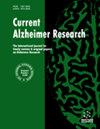Ca2+/cAMP信号传导的时间表:从基础研究到痴呆症的潜在治疗方法。
IF 1.9
4区 医学
Q3 CLINICAL NEUROLOGY
引用次数: 0
摘要
背景已经建立了Ca2+稳态失调增加痴呆发病率的假说。事实上,一些发现强调了这样一个概念,即减少过量的Ca2+可能是缓解痴呆症状的一个有趣的药理学靶点。日常锻炼、热量摄入的自我控制以及参与智力挑战性活动可以支持衰老和大脑健康。这些生活方式因素可以缓解由Ca2+稳态失调引起的Ca2+过量。奇怪的是,流行病学和临床研究也报告了高血压、糖尿病和其他炎症过程之间的临床关系,以及认知能力下降的更高风险。考虑到科学文献中的累积数据,包括荟萃分析和系统综述等高证据数据,我们现在可以将Ca2+稳态失调作为高血压、糖尿病和其他炎症过程以及痴呆症的上游因素联系起来。一些报告还表明,增加cAMP水平可能会诱导神经保护结果,从而缓解痴呆症状。方法从这些概念出发,我们发现Ca2+/cAMP信号的药理学操作可能是治疗痴呆的一个新的可行靶点。这篇文章汇集了治疗痴呆症的基本概念和当前疗法,包括来自Ca2+/cAMP信号药理学操作的新疗法。结果再加上生活方式问题的改善,这些新的治疗方法可能会持续改善与年龄相关的神经系统患者的生活质量。结论此外,考虑到2019冠状病毒病(新冠肺炎)是一个快速发展的领域,本文还回顾了最近关于Ca2+通道阻断剂在恢复新冠肺炎引起的Ca2+信号中断中的作用的报道。最后,本文还提出了Ca2+/cAMP信号传导中主要事件的时间表。本文章由计算机程序翻译,如有差异,请以英文原文为准。
A timeline of Ca2+/cAMP signalling: From basic research to potential therapeutics for dementia.
BACKGROUND
The hypothesis that a dyshomeostasis of Ca2+ increases the incidence of dementia has been established. In fact, several discoveries have emphasized the concept that a decrease of the excess of Ca2+ could be an interesting pharmacological target to alleviate dementia symptoms. Aging along with a healthy brain can be supported by daily exercise, a self-control in caloric ingestion, and participating in intellectually challenging events. These lifestyle factors may alleviate the excess of Ca2+ resulted from a Ca2+ dyshomeostasis. Curiously, epidemiological, and clinical studies have also reported a clinical relationship among hypertension, diabetes and other inflammatory processes, and a higher risk for a decline of cognition. Considering the cumulative data from the scientific literature, including data of high evidence such as meta-analysis and systematic reviews, we can now link a Ca2+ dyshomeostasis as an upstream factor for hypertension, diabetes and other inflammatory processes, and dementia. Several reports have also indicated that increasing cAMP levels may induce neuroprotective outcomes, thus alleviating dementia symptoms.
METHODS
From these concepts in mind, we found that the pharmacological manipulation of Ca2+/cAMP signalling could be a novel plausible target to treat dementia. This article puts together fundamental concepts, and current therapies, to treat dementia, including novel therapeutics coming from the pharmacological manipulation of Ca2+/cAMP signalling.
RESULTS
Then, combined with improvements in the lifestyle issues, these novel therapeutics may allow sustained improvements in the life quality of age-related neurological patients.
CONCLUSIONS
In addition, considering coronavirus disease 2019 (COVID-19) is a rapidly evolving field, this article also reviewed recent reports about the role of Ca2+ channel blockers for restoring Ca2+ signalling disruption due to COVID-19. Finally, this article also presents a timeline of the major events in Ca2+/cAMP signaling.
求助全文
通过发布文献求助,成功后即可免费获取论文全文。
去求助
来源期刊

Current Alzheimer research
医学-神经科学
CiteScore
4.00
自引率
4.80%
发文量
64
审稿时长
4-8 weeks
期刊介绍:
Current Alzheimer Research publishes peer-reviewed frontier review, research, drug clinical trial studies and letter articles on all areas of Alzheimer’s disease. This multidisciplinary journal will help in understanding the neurobiology, genetics, pathogenesis, and treatment strategies of Alzheimer’s disease. The journal publishes objective reviews written by experts and leaders actively engaged in research using cellular, molecular, and animal models. The journal also covers original articles on recent research in fast emerging areas of molecular diagnostics, brain imaging, drug development and discovery, and clinical aspects of Alzheimer’s disease. Manuscripts are encouraged that relate to the synergistic mechanism of Alzheimer''s disease with other dementia and neurodegenerative disorders. Book reviews, meeting reports and letters-to-the-editor are also published. The journal is essential reading for researchers, educators and physicians with interest in age-related dementia and Alzheimer’s disease. Current Alzheimer Research provides a comprehensive ''bird''s-eye view'' of the current state of Alzheimer''s research for neuroscientists, clinicians, health science planners, granting, caregivers and families of this devastating disease.
 求助内容:
求助内容: 应助结果提醒方式:
应助结果提醒方式:


